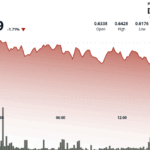Here is the rewritten content in HTML format, concise and professional news style:
In Brief: French VPN Usage Soars Over New Porn Regulations
After the French national assembly introduced mandatory age verification for porn websites, users reportedly surged towards VPN services to regain access.
ProtonVPN recorded a 1,000% increase in signups from French users within 30 minutes as Pornhub blocked access from the country.
ProtonVPN criticized the law, voicing concerns about mandatory ID collection by third-party sites creating sensitive data repositories. Similarly, Pornhub parent company Aylo argued the law fails to protect children.
ProtonVPN Usage Jumps Amid Regulatory Shift
French users quickly migrated to ProtonVPN from Pornhub following the July government-mandated age verification rules. ProtonVPN claimed signups increased tenfold, though historical data wasn’t available for comparison.
ProtonVPN, developed by the same company behind ProtonMail, noted that VPNs bypass blocks by masking IP addresses and encrypting traffic. This surge highlights a common challenge for restrictive policies.
Industry Positioning
ProtonVPN stated its original intent was to circumvent censorship, not enable evasions of French law, adding, “Signups from France have temporarily increased by a factor of ten.”
Alternative solutions like device-level age verification are suggested by both ProtonVPN and Aylo. Aylo pointed out the need for the three major operating system manufacturers to implement such regulations.
VPN Popularity
ProtonVPN ranks among the world’s most widely used VPNs. According to Appfigures, it saw approximately 3.6 million global combined downloads in May (Google Play: 3M, App Store: ~620K), exceeding competitors NordVPN (~1.7M) and ExpressVPN (~690K).
A Pattern of User Workarounds
French lawmakers are attempting these measures amid global trends for age restrictions. Similar crackdowns, like credit card bans on Pornhub in 2020, often drive users toward privacy technologies like VPNs.
This VPN surge represents a recurring conflict between new internet regulations and users’ technical ability to circumvent them.












